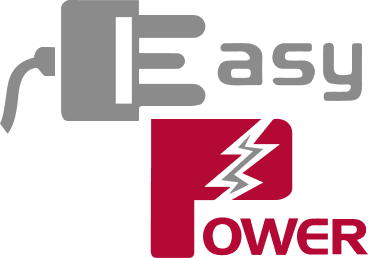Inverter Price in Uganda: What You Need to Know Before Buying
You’re here because you’ve been wondering about the inverter price in Uganda. Maybe you’re fed up with power cuts, or perhaps you’re thinking about going solar. Either way, you’re probably asking yourself, How much does an inverter cost, and is it worth it?
The short answer: It depends on the size and type of inverter you choose. But don’t worry, we’ll break it all down for you—no confusing tech talk, just a simple guide to help you figure out what’s best for your home or business.
Inverter Price in Uganda: How Much Should You Budget?
Let’s get straight to the point—the price of a hybrid inverter in Uganda varies depending on its size. Here’s a quick list of what you can expect to pay:
- 1 Kva: 1 million UGX
- 1.5 Kva: 1.5 million UGX
- 3 Kva: 3 million UGX
- 3.5 Kva: 3.5 million UGX
- 5 Kva: 5 million UGX
- 5.5 Kva: 5.5 million UGX
These prices are for hybrid inverters, which are a solid choice because they can switch between solar power and the grid. Imagine being able to rely less on UMEME and more on the sun—sounds like a dream, right?
But before you rush off to buy one, let’s look at what size you really need based on what you want to power.
What Size Inverter Do You Actually Need?

Let’s be real: You don’t want to overspend on a giant inverter if all you need is to keep your TV running during a power cut. On the flip side, you don’t want to go too small and regret it when your fridge shuts off halfway through the day.
Here’s a quick guide to help you:
- 1 Kva: Perfect for small electronics—think TV, decoder, and a few lights.
- 1.5 Kva: Add a bit more power—maybe a fan or a couple more lights.
- 3 Kva: Great for most household appliances, including a fridge and microwave.
- 5 Kva: Ideal if you want to power almost everything in your home, including heavier appliances like an air conditioner.
The size you choose depends on how many devices you want to keep running when the lights go out. The bigger your power needs, the bigger the inverter—and, of course, the bigger the price tag.
Why Choose a Hybrid Inverter in Uganda?
Now, you might be thinking, Why go for a hybrid inverter, specifically?
It’s simple: A hybrid inverter allows you to switch between solar energy and the main grid. This is a game-changer, especially in a sunny country like Uganda. Not only do you get backup power during outages, but you also get to save on electricity bills by using free solar energy during the day.
Here are a few reasons why hybrid inverters are worth considering:
- Cost savings: Once installed, solar power is free. Hybrid inverters let you tap into that.
- Energy independence: Rely less on the grid and avoid power cuts.
- Environmentally friendly: Going solar reduces your carbon footprint.
As the saying goes, “The sun never sets on a solar-powered home.”
FAQs: Everything You Need to Know About Inverter Price in Uganda

1. What size inverter do I need to run a TV and decoder?
If all you’re looking to power is a TV and decoder, a 1 Kva inverter (1 million UGX) will do the job. You can also throw in a few lights, and you’re still within the safe zone.
2. What size inverter is needed to run a house?
For a typical household, a 3 Kva inverter (3 million UGX) is usually enough to keep things running smoothly. It can handle your fridge, lights, fans, and a few other appliances. If you have heavier equipment, like an air conditioner or washing machine, you might want to go for a 5 Kva inverter (5 million UGX).
3. What can a 1000W inverter run?
A 1000W (1 Kva) inverter can power:
- A TV
- Decoder
- A few lights
- Laptop or phone chargers
It’s perfect for small setups and basic appliances.
4. What can a 2.5 Kva inverter power?
A 2.5 Kva inverter can handle:
- A fridge
- Lights
- TV and decoder
- Fans
- Electric kettle
It’s a great option for small-to-medium households that need a reliable power backup.
What’s the Bottom Line on Inverter Prices in Uganda?
At Easy Power, we’ve seen countless Ugandans make the switch to hybrid inverters, and for good reason. Not only are they cost-effective in the long run, but they also provide peace of mind during power outages.
The key is to pick the right size for your needs:
- If you just want to keep a few essentials on, go for a 1 Kva or 1.5 Kva inverter.
- If you’re looking to run most of your household appliances, a 3 Kva or 5 Kva inverter will be your best bet.
And with prices starting at 1 million UGX, there’s an option for every budget.
Final Thoughts: Inverter Price in Uganda
Investing in a hybrid inverter is like having an insurance policy for your home’s power supply. Sure, the upfront cost might seem steep, but in the long run, it pays off—both in terms of money saved and the peace of mind that comes from knowing you’ll never be left in the dark.
Inverter prices in Uganda are more affordable than you might think, and with solar power becoming more popular, there’s never been a better time to invest.
As we always say at Easy Power, “Don’t wait for the light at the end of the tunnel—get a hybrid inverter and bring the light to you.”
Now that you know the prices and what different sizes can power, what are you waiting for? The sun is shining, and it’s time to take control of your energy!



